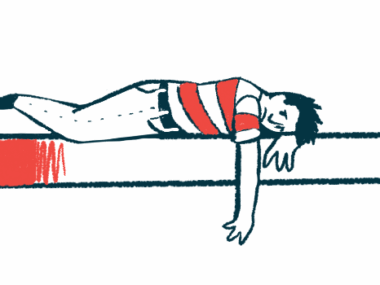Tips for Managing Anxiety for People with EDS
Written by |

Many people with Ehlers-Danlos syndrome (EDS) deal with chronic pain and fatigue. This may contribute to the frequency of anxiety disorders among EDS patients. Indeed, some studies have indicated that anxiety affects more than half of those with hypermobile EDS.
What is anxiety?
Everyone feels anxious from time to time. You might feel anxious before a big decision, when there are important changes in your life, or when you’re dealing with a problem. However, persistent anxious feelings that interfere with school, work, or personal relationships can be a sign that something is wrong.
Anxiety can be at a low level, like constant low-grade worry, or severe and sudden like a panic attack — a sudden burst of fear that comes on over a short period of time and may trigger severe physical reactions. Panic attacks can be triggered by events or thoughts or may have no specific cause.
If you are experiencing anxiety or panic attacks, talk to your doctor about treatment and management options.
Here are some tips that may help with the management of stress and anxiety:
Get enough sleep
Getting enough sleep may help reduce fatigue, which is a common symptom for people with EDS. Try to get enough sleep by shutting off electronics an hour before bedtime, or limiting caffeine in the evenings. This can help you feel more rested in the morning.
It can be a good idea to limit alcohol and nicotine as well, as these can also interfere with sleep.
Try keeping a regular bedtime and wake-up schedule, as that can be helpful in getting enough sleep and preventing fatigue.
Eat a healthy diet
It’s recommended that everyone eat a healthy diet — though what “healthy” means for each person may be slightly different. Talk to your doctor and a registered dietitian to make sure that your diet contains all the vitamins and nutrients you need. Lack of some vitamins may contribute to overall anxiety and depression because many vitamins are used by the body to make neurotransmitters or signaling molecules in the brain. However, some vitamin supplements can interfere with medications, so it’s important to discuss what you’re taking with your doctor.
The specific connection between diet and EDS symptoms is not clear. Ehlers-Danlos Support UK is currently fundraising for a clinical trial to determine whether diet can reduce the symptoms of hypermobile EDS.
Exercise daily
Although no specific study has been conducted to determine whether exercise is effective for people with EDS, research has shown that it can be beneficial for people with a number of chronic conditions.
It can be hard for you to exercise if you have EDS as your joints may be fragile and easily dislocate, and your skin can be very fragile. Therefore, it is important to work with your care team to determine an exercise routine that is safe for you. Even gentle, low-impact exercise can be helpful. Talk with your doctor and your physiotherapist to develop a safe exercise routine that you can do every day or every couple of days.
Talk with others
It’s important to feel connected to other people. Whether as part of your work, volunteering, friend group, or religious involvement, try to find time to talk with other people. Set goals of meeting up with friends regularly. This could be as simple as getting together for a cup of coffee to chat and catch up. These connections can help ground you in your community and establish support networks.
Mindfulness or meditation
Trying mindfulness or meditation techniques can help ground you and may help you gain perspective on the things you feel anxious about. These techniques usually are a combination of breathing exercises and mental focusing exercises. While you don’t need to meditate in a group, it can be helpful to have support, especially when you’re first trying it. There are mindfulness and meditation groups in almost every city – check out local groups to get started!
Last updated: Mar. 11, 2020
***
Ehlers-Danlos News is strictly a news and information website about the disease. It does not provide medical advice, diagnosis, or treatment. This content is not intended to be a substitute for professional medical advice, diagnosis, or treatment. Always seek the advice of your physician or other qualified health provider with any questions you may have regarding a medical condition. Never disregard professional medical advice or delay in seeking it because of something you have read on this website.




